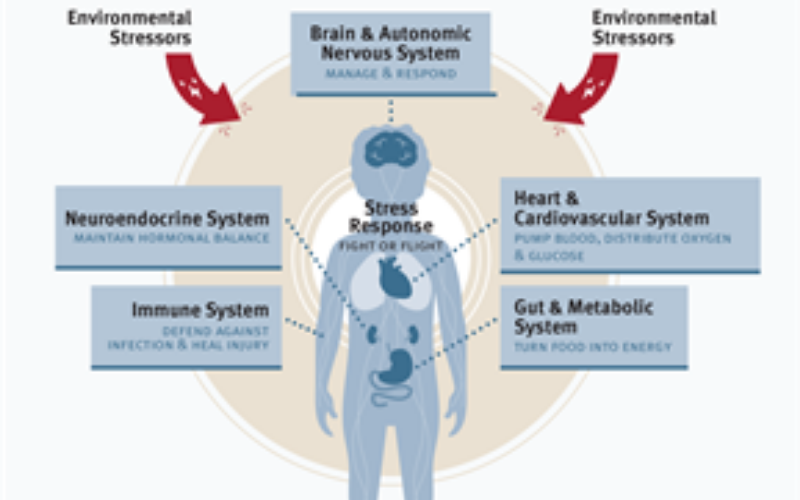Experiences during a child’s first 2-3 years of life can have an effect on later school achievement.Early experience in life creates brain circuits, learning, and overall well-being. Look at all the systems that impact a child’s brain and nervous system (Courtesy of Harvard.edu)
ALL SYSTEMS LEAD TO THE BRAIN!
- Information is gathered from the environment, from a child’s senses, and sent up to the brain.
- The brain processes the information.
- The brain sends a response.
- If plan A doesn’t work, this loop is repeated and a plan B is created. And so on….And so on…. This loop begins at birth and is refined over time, based on a child’s experiences.
Therefore, think about these principles:
- Set up an environment that lets a child learn in their own way on their own time.
- Let your child experience as much as they can. These experiences are an opportunity to learn.
- Consistent routines are helpful for a child’s development. They know what’s coming first, then next, and the expected outcome.
- Chronic conditions are stressors for everyone. Make sure that you stay calm and breathe! Self regulation is not only essential for a child, it’s also an important quality to have for adults. Chronic stressors can contribute to cardiovascular disease, hypertension, mental health issues, and internal inflammation. All of which can be positively impacted by finding joy.
Your child’s brain development starts in utero but continues to morph through the first years of life. A child that lives in a supportive environment, that’s full of learning opportunities and experiences will feel more, think more, and react more. A rich environment and daily learning opportunities for the brain and body to feel can only help your child. If a caretaker or parent would like more information about setting up a sensory-rich environment, contact a pediatric physical or occupational therapist for helpful hints.
Dr Sharon Galitzer, pediatric physical therapist
